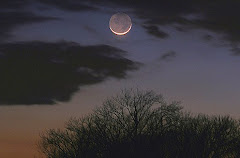Thursday, February 22, 2007
The Contemporary Shaman
When I first published my book, A Hundred Ways To Sunday, I had to think about my "title" in the author description. I was wary of using "shaman" because I knew very well that a shaman does not call herself a shaman. At least not the old shaman, working for the tribe in the old ways. It would be like calling oneself holy, or great, or revered—tooting your own horn and beating your chest in pride. Not good. Better to let the other tribe members call you shaman, if you are worth your salt, which they will know.
Yet in our modern tribal setting (i.e. the city), we don't have anyone else to call us shamans. If we don't hang some sort of shingle, no one knows where to find us, let alone what to expect.
I was also concerned because I have not been taught for 14 years by a master shaman in the jungle under threat of deathly risk and then handed the mantle of a specific lineage. In fact, I don't have any kind of linage, though I have studied with shamans from around the world. (I have no problem admitting this—either my work works or it doesn't.) I know I was spirit taught, which I'm told by the Old Ones is really the best anyway, but who is going to go for that in a culture where the initials after your name are the only legitimate proof of your worth?
Tuning in to my guides, I was told to call myself a "contemporary shaman." I was still a little uncertain, and knew I would get some flack. But it seemed the best solution. We need more shamans to be "out there" (maybe not in the yellow pages, but able to be found). And we need to be able to let people in our community know that shamans are around and available for shamanic work.
As for people asking me who I was trained by, today I simply tell the truth: Death. Death was my advisor from the earliest ages, and living with so much death in my life, I began to see things others don't notice. Then, when the teachings started to come, especially in dreams, I started following. I still just follow.
Since then, the term "contemporary shaman" has come to mean much more to me. Because today I have become a bridge from the old ways to the new people. I translate the old ways, ideas, and rituals in such a way that the contemporary people I serve don't get too weirded out. When I am preaching to the choir, which is to say those who would not get weirded out anyway, I fall into more of the old ways. But I can shapeshift as needed...a contemporary shaman, doing shamanic work in the deepest of old ways, and translated to the public that needs the bridge. It works for me...and my clients...how does it work for you?
Yet in our modern tribal setting (i.e. the city), we don't have anyone else to call us shamans. If we don't hang some sort of shingle, no one knows where to find us, let alone what to expect.
I was also concerned because I have not been taught for 14 years by a master shaman in the jungle under threat of deathly risk and then handed the mantle of a specific lineage. In fact, I don't have any kind of linage, though I have studied with shamans from around the world. (I have no problem admitting this—either my work works or it doesn't.) I know I was spirit taught, which I'm told by the Old Ones is really the best anyway, but who is going to go for that in a culture where the initials after your name are the only legitimate proof of your worth?
Tuning in to my guides, I was told to call myself a "contemporary shaman." I was still a little uncertain, and knew I would get some flack. But it seemed the best solution. We need more shamans to be "out there" (maybe not in the yellow pages, but able to be found). And we need to be able to let people in our community know that shamans are around and available for shamanic work.
As for people asking me who I was trained by, today I simply tell the truth: Death. Death was my advisor from the earliest ages, and living with so much death in my life, I began to see things others don't notice. Then, when the teachings started to come, especially in dreams, I started following. I still just follow.
Since then, the term "contemporary shaman" has come to mean much more to me. Because today I have become a bridge from the old ways to the new people. I translate the old ways, ideas, and rituals in such a way that the contemporary people I serve don't get too weirded out. When I am preaching to the choir, which is to say those who would not get weirded out anyway, I fall into more of the old ways. But I can shapeshift as needed...a contemporary shaman, doing shamanic work in the deepest of old ways, and translated to the public that needs the bridge. It works for me...and my clients...how does it work for you?
Labels:
A Hundred Ways To Sunday,
death,
old ways,
shamans
Subscribe to:
Post Comments (Atom)







1 comment:
Today the world is in such bad shape that we can't afford to not "hang up a shingle" and get the word out there.
Post a Comment